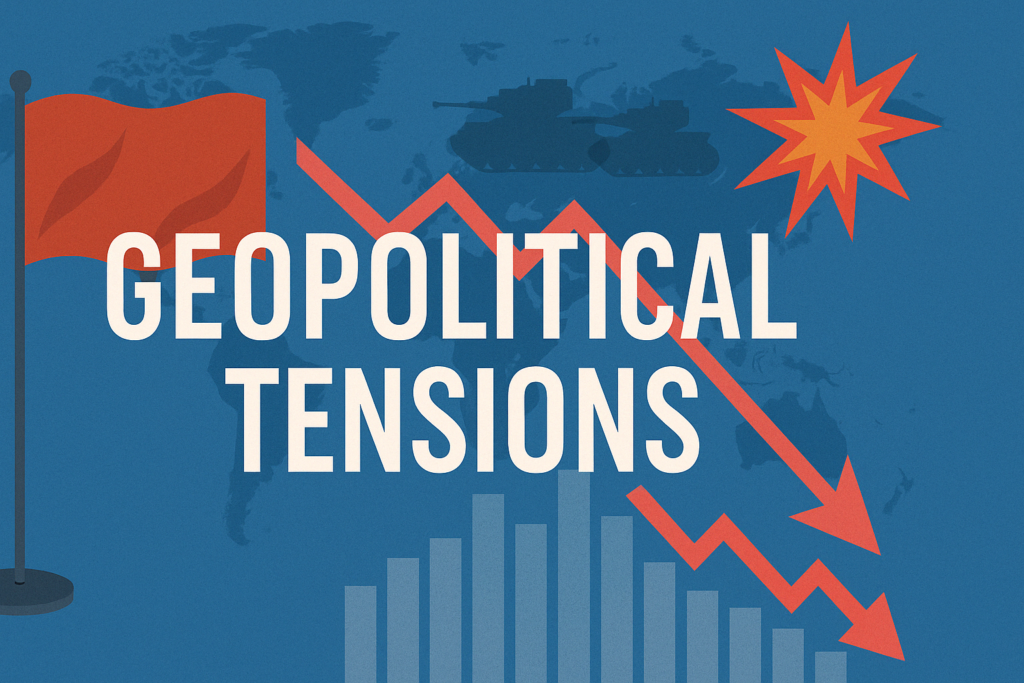Let’s be real: 2025 feels like the world is playing a game of Jenga—blindfolded, on a trampoline. Every time one world leader clears their throat, the stock market reaction is instant. Up, down, sideways. It’s like watching a soap opera where the characters are currencies, oil prices, and your retirement fund.
So what’s really going on? How are these geopolitical tensions turning global markets into emotional wrecks? And most importantly—why should you care (besides the obvious fact that you probably don’t want your investments turning into confetti)?
Let’s unpack it—with a little less gloom and a lot more clarity.
When Trade Wars Turn Into Trust Issues
Remember when “trade war” sounded like something only economists argued about in think tanks? Not anymore. In 2025, trade wars are making headlines almost as often as celebrity breakups. And the fallout? It hits everything from your online orders to the cost of avocados.
Nations imposing tariffs like it’s a flex isn’t just political drama—it’s economic disruption. When big players like the U.S., China, and the EU start slapping taxes on each other’s goods, global supply chains tighten, companies panic, and yes, prices go up. For businesses, it’s like playing chess during an earthquake. For consumers? It’s paying $9 for a cup of coffee and wondering how we got here.
The Stock Market’s Mood Swings
If the global stock market had a relationship status, it’d be “It’s complicated.”
Why? Because it’s reacting to every diplomatic whisper like it’s a personal attack. One tense border standoff or aggressive trade comment, and the market tanks. Then it rebounds after a “hopeful” tweet from some official halfway across the world. The emotional energy here? Unmatched.
This kind of stock market reaction isn’t just random—it’s fear, anticipation, and speculation all bundled into a financial rollercoaster. Investors don’t like surprises, and geopolitics is basically a surprise factory. That means volatility spikes, risk goes up, and people start clutching their portfolios like security blankets.
Economic Diplomacy: Talking Our Way Out of Trouble?
You’d think world leaders would sit down, sip tea, and figure it all out like adults. Welcome to the dream.
Economic diplomacy is supposed to be the cooler cousin of military strategy—solve problems with handshakes, not headlines. But lately, it’s looking more like group therapy with microphones. Countries are negotiating behind closed doors while publicly throwing shade. Multilateral talks are scheduled, postponed, or ignored altogether depending on who’s annoyed this week.
Still, credit where it’s due: backdoor negotiations have occasionally helped ease tensions, reopen trade routes, or prevent bigger disasters. It’s just… slow. And unpredictable. Kind of like texting your ex to “talk things out.”
Currency Chaos and the Domino Effect
When big powers clash, it’s not just stock markets that get shaky—currencies, commodities, and whole economies start wobbling too.
A diplomatic hiccup between two major countries can cause a regional currency to tank, while gold prices spike as people panic and look for safer bets. Oil reacts. Tech companies sweat. Shipping costs rise. It’s a domino effect, and it moves fast.
In this environment, smaller countries often take the hardest hits. While economic giants can afford to bicker, developing markets get whiplash. Foreign investments dry up, currencies devalue, and local economies feel the chill.
How This Affects You (Yes, You)
You might be thinking, “Cool story, but I’m not a trader or a CEO—so why should I care?”
Here’s the deal: global markets touch almost every part of your life. That phone in your hand? Built from parts shipped across borders. The gas in your car? Priced by international negotiations. Your savings? Probably tied to market performance.
Geopolitical tensions drama doesn’t just play out on news channels—it sneaks into your grocery bill, your job market, your travel plans. It’s the ultimate “global group project” where one person forgetting their part can sink the whole thing.
So, Where Do We Go From Here?
2025 has taught us that geopolitical tensions are no longer background noise—they’re front and center in how economies function (or falter). Markets crave certainty, and politics keeps giving them plot twists. It’s exhausting, a little absurd, but also very real.
If there’s a silver lining, it’s that countries are learning (sometimes the hard way) that cooperation—real, messy, strategic cooperation—isn’t optional anymore. Whether through trade agreements, diplomatic summits, or emergency calls between finance ministers, economic diplomacy is slowly becoming the adult in the room.
So next time you see headlines about leaders having “productive talks,” don’t roll your eyes just yet. They might just be buying us all a little breathing room.


